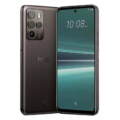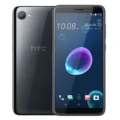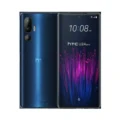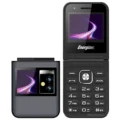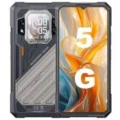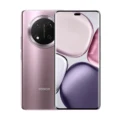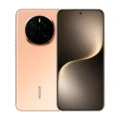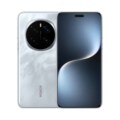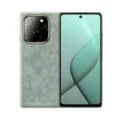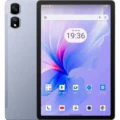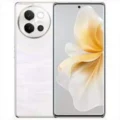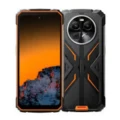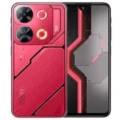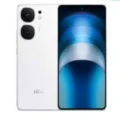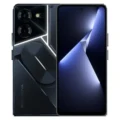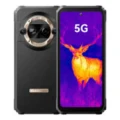HTC Desire 19s


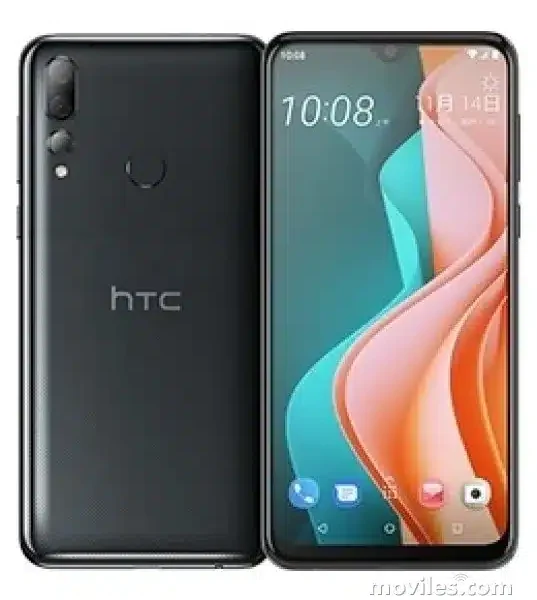
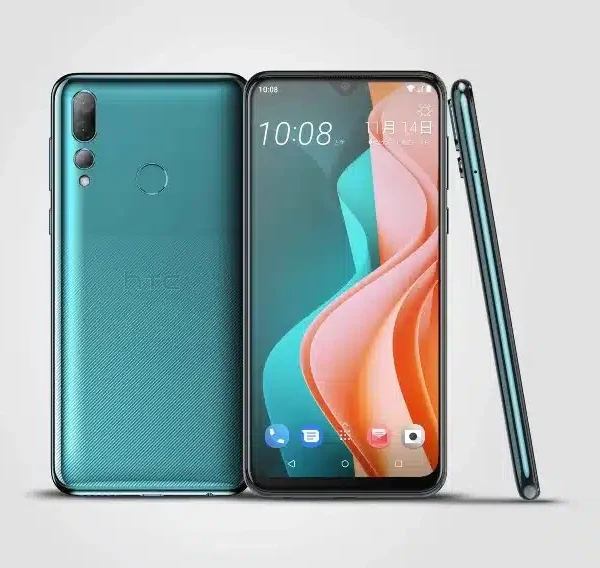
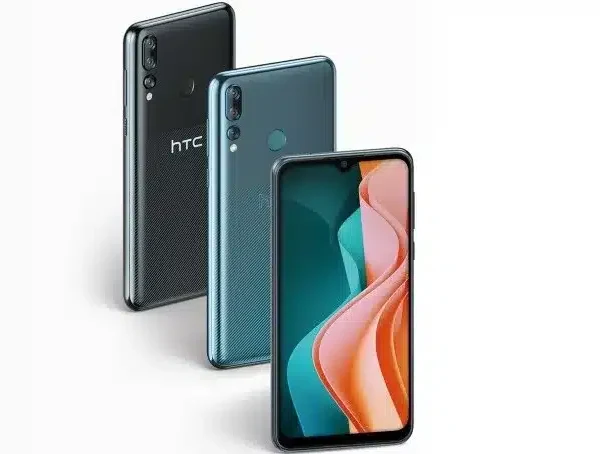
-
: 3GB RAM Helio P22
-
: 6.2" 720x1520 pixels
-
: 3850mAh 10W
-
: 13MP 1080p
HTC Desire 19s: A Classic Phone with Modern Features
The HTC Desire 19s is a smartphone that seamlessly blends classic design with contemporary features. With its sleek and ergonomic build, the Desire 19s offers a comfortable grip and a visually appealing aesthetic.
A Display to Remember
The Desire 19s boasts a 6.2-inch IPS LCD display with a resolution of 720 x 1520 pixels. This expansive screen delivers vibrant colors and sharp visuals, making it ideal for streaming videos, playing games, or browsing the web. Additionally, the 19:9 aspect ratio provides an immersive viewing experience, further enhancing your entertainment.
Capture Moments with Clarity
The Desire 19s is equipped with a versatile triple-camera setup on the rear. The 13MP primary sensor captures detailed images, while the 5MP ultrawide lens allows you to capture more of the scene. Furthermore, the 5MP depth sensor helps you create stunning portrait shots with a professional-looking bokeh effect. On the front, a 16MP selfie camera lets you capture stunning self-portraits and video calls with clarity.
Performance That Keeps Up
Powered by the MediaTek Helio P22 octa-core processor, the Desire 19s delivers smooth performance for everyday tasks. Coupled with 3GB of RAM, the phone handles multitasking with ease, whether you’re switching between apps or playing resource-intensive games. The 32GB of internal storage provides ample space for your photos, videos, and apps.
Long-lasting Battery
The Desire 19s is fueled by a 3850mAh battery that can easily last through a full day of use. Whether you’re browsing social media, streaming videos, or making calls, the battery ensures you stay connected without worrying about frequent recharges.
Android Experience
The Desire 19s runs on Android 9 Pie, offering a clean and intuitive user interface. You’ll enjoy a range of features and customization options to personalize your phone experience. Additionally, regular software updates ensure you have access to the latest security patches and features.
In conclusion, the HTC Desire 19s is a well-rounded smartphone that offers a compelling combination of design, performance, and features. Whether you’re a casual user or a tech enthusiast, the Desire 19s is sure to meet your needs and provide a satisfying user experience.
Specs
Network
| 2G Network GSM 850 / 900 / 1800 / 1900 - SIM 1 & SIM 2 (dual-SIM) CDMA 800 / 1900 |
GSM 850 / 900 / 1800 / 1900 - SIM 1 & SIM 2 |
| 3G Network |
HSDPA 850 / 900 / 1900 / 2100 |
| 4G Network |
1, 2, 3, 5, 7, 8, 20, 28, 38, 39, 40, 41 |
| Speed |
HSPA 42.2/5.76 Mbps, LTE (2CA) Cat6 300/50 Mbps |
LAUNCH
| Announced | November, 2025 |
| Status |
Available. Released 2019, November 14 |
BODY
| Dimensions | 156.2 x 74.8 x 8.5 mm (6.15 x 2.94 x 0.33 in) |
| Weight | 170 g (6.00 oz) |
| Build | Glass front, plastic back, plastic frame |
| SIMs SIM (Subscriber Identity Module) is a small card that contains mobile network subscriber's account information. This allows the phone using the card to attach to a mobile network. The SIM card is most commonly associated with GSM and UMTS mobile networks. Moving a SIM card from one phone to another allows a subscriber to switch mobile phones without having to contact their mobile network carrier. SIM cards can also be used by a phone to store limited amounts of data, such as phone numbers and text messages. |
Hybrid Dual SIM (Nano-SIM, dual stand-by) |
Display
| Display Type Display Technology => A number of display technologies and types used in mobile phones => TFT (Thin Film Transistor), IPS (In-Place Switching), OLED (Organic Light Emitting Diode), AMOLED (Active-Matrix Organic Light-Emitting Diode), Super AMOLED (an even advanced version of AMOLED), Resistive Touchscreen (Resistive touchscreens contain two layer of conductive material with a very small gap between them which acts as a resistance), Capacitive Touchsceen (Capacitive touchscreen technology consists of a layer of glass coated with a transparent conductor) | IPS LCD |
| Size | 6.2 inches, 95.9 cm2 (~82.1% screen-to-body ratio) |
| Resolution | 720 x 1520 pixels, 19:9 ratio (~271 ppi density) |
PLATFORM
| Operating System OS => Every computer system run on a base software called Operating System (OS). Operating System controls all basic operations of the computer (such as smartphone, PDAs, tablet computers and other handheld devices). The Operating System allows the user to install and run third party applications (apps), apps are used to add new functionality to the device. | Android 9 (Pie) |
| Chipset Chipset is a group of integrated circuits designed to perform one or a more dedicated functions, often with real time computing constraints, Popular smartphones are equipped with more advanced embedded chipsets that can do many different tasks depending on their programming. | Mediatek MT6762 Helio P22 (12 nm) |
| CPU CPU (Central Processing Unit) mostly known as processors, CPU processes instructions in order to carry out certain functions that make your device operate properly. Processors are often described as the brain of computers, smartphones and tablets, Smartphones and tablets rely on processors to carry out their every task, Processors are an incredibly important factor in selecting any type of computing device, including your smartphone. | Octa-core 2.0 GHz Cortex-A53 |
| GPU GPU (Graphics Processing Unit) is a single-chip processor designed to rapidly manipulate and alter memory to accelerate the creation of images in a frame buffer intended for output to a display, This includes things such as lighting effects, object transformations, and 3D motion. | PowerVR GE8320 |
MEMORY
| Card Slot Memory Card Slot is a special slot for inserting a memory card. Memory cards allow you to expand the phone's built-in memory, A memory card (sometimes called a flash memory card or a storage card) is a small storage medium used to store data such as text, pictures, audio, and video, for use on small, portable or remote computing devices such as mobile phones, mp3 players, digital cameras. | microSDXC (uses shared SIM slot) |
| Internal | 32GB 3GB RAM eMMC 5.1 |
MAIN CAMERA
| Cameras Specs Today’s smartphones come equipped with a very comprehensive set of camera related specifications. Our smartphone, for many of us, has become our primary camera due to it being the one we always have with us. |
13 MP, f/1.9, 26mm (wide), PDAF 5 MP, f/2.2, 13mm (ultrawide) 5 MP, f/2.2, (depth) |
| Video | 1080p@30fps |
| Camera Features |
Dual-LED dual-tone flash, HDR, panorama |
SELFIE CAMERA
| Cameras Specs Today’s smartphones come equipped with a very comprehensive set of camera related specifications. Our smartphone, for many of us, has become our primary camera due to it being the one we always have with us. |
16 MP, f/2.0, 27mm (wide), 1/3.06", 1.0µm |
| Features |
HDR |
| Video | 1080p@30fps |
SOUND
| Loudspeaker | Yes |
| 3.5mm jack |
Yes |
COMMS
| WLAN |
Wi-Fi 802.11 a/b/g/n/ac, dual-band, Wi-Fi Direct |
| Positioning |
GPS, GLONASS, BDS |
| Bluetooth Bluetooth is a wireless communications technology for exchanging data between mobile phones, headsets, computers and other network devices over short distances without wires, Bluetooth technology was primarily designed to support simple wireless networking of personal consumer devices. | 5.0, A2DP, LE |
| Infrared Infrared connectivity is an old wireless technology used to connect two electronic devices. It uses a beam of infrared light to transmit information and so requires direct line of sight and operates only at close range. | |
| USB | USB Type-C 2.0, OTG |
| NFC NFC (Near field communication) is a set of standards for smartphones and similar devices to establish peer-to-peer radio communications with each other by touching them together or bringing them into proximity, usually no more than a few inches. | |
| Radio |
Features
| Sensors Sensors are electronic components that detects and responds to some type of input from the physical environment. The specific input could be light, heat, motion, moisture, pressure and location, The output is generally a signal that is converted to use in computing systems, a location sensor, such as a GPS receiver is able to detect current location of your electronic device. |
Fingerprint (rear-mounted), accelerometer, proximity, compass |
BATTERY
| Battery Type Battery Type => Cell phones run on various kinds of batteries depending on the manufacturer, phone size or shape and features. There are basically four types of cell phone batteries => Lithium Polymer, Lithium Ion, Nickel Metal Hydride and Nickel Cadmium. | Li-Ion (Lithium Ion) |
| Capacity Battery Capacity is a measure (typically in Amp-hr) of the charge stored by the battery, and is determined by the mass of active material contained in the battery. The battery capacity represents the maximum amount of energy that can be extracted from the battery under certain conditions. | 3850 mAh |
| Placement | non-removable |
| Charging The functionality responsible for recharging batteries in portable devices, such as mobile phones, significantly influences both battery lifespan and the practicality of daily product usage. The charging process, encompassing factors like voltage, current, and completion actions, is contingent upon the battery's size and type. Contemporary battery chargers dynamically adjust charging parameters based on the battery's current charging state. Charging an empty battery poses no safety risk, allowing for a quicker charging process. Consequently, many charging speed benchmarks, including ours, specify the battery level achieved after a 30-minute session on an empty battery. Standard chargers with a power output of 5V/1A, equivalent to 5W, serve as a baseline, with anything surpassing this speed classified as quick or fast charging. | 10W wired |
MISC
| Colors |
Blue, Black |
| Price |
About 180 EUR |
TESTS
Reviews
Disclaimer Note
We strive to maintain accurate and up-to-date content on our website for general information purposes only. Please refrain from using the material for business, legal, or any other decisions.


